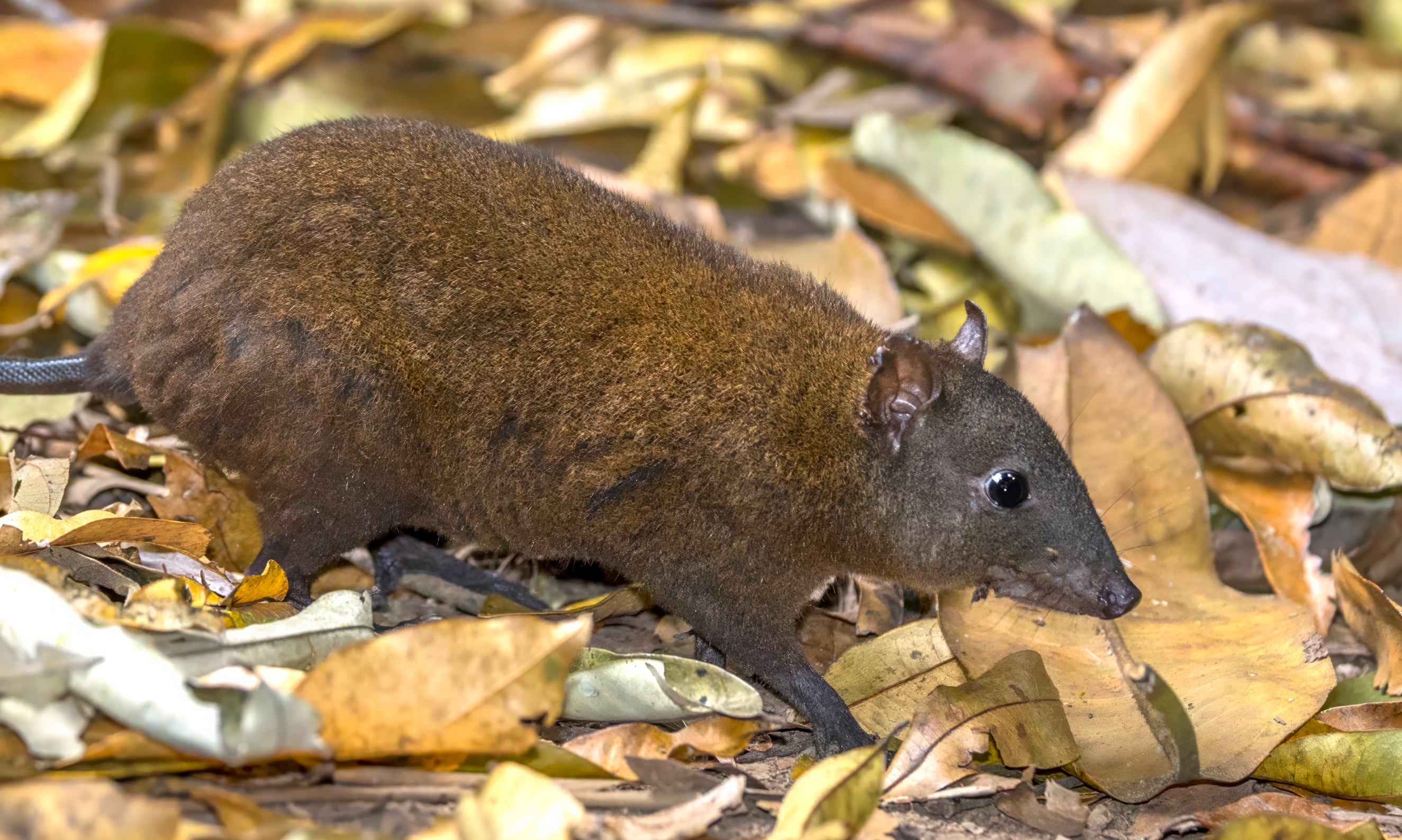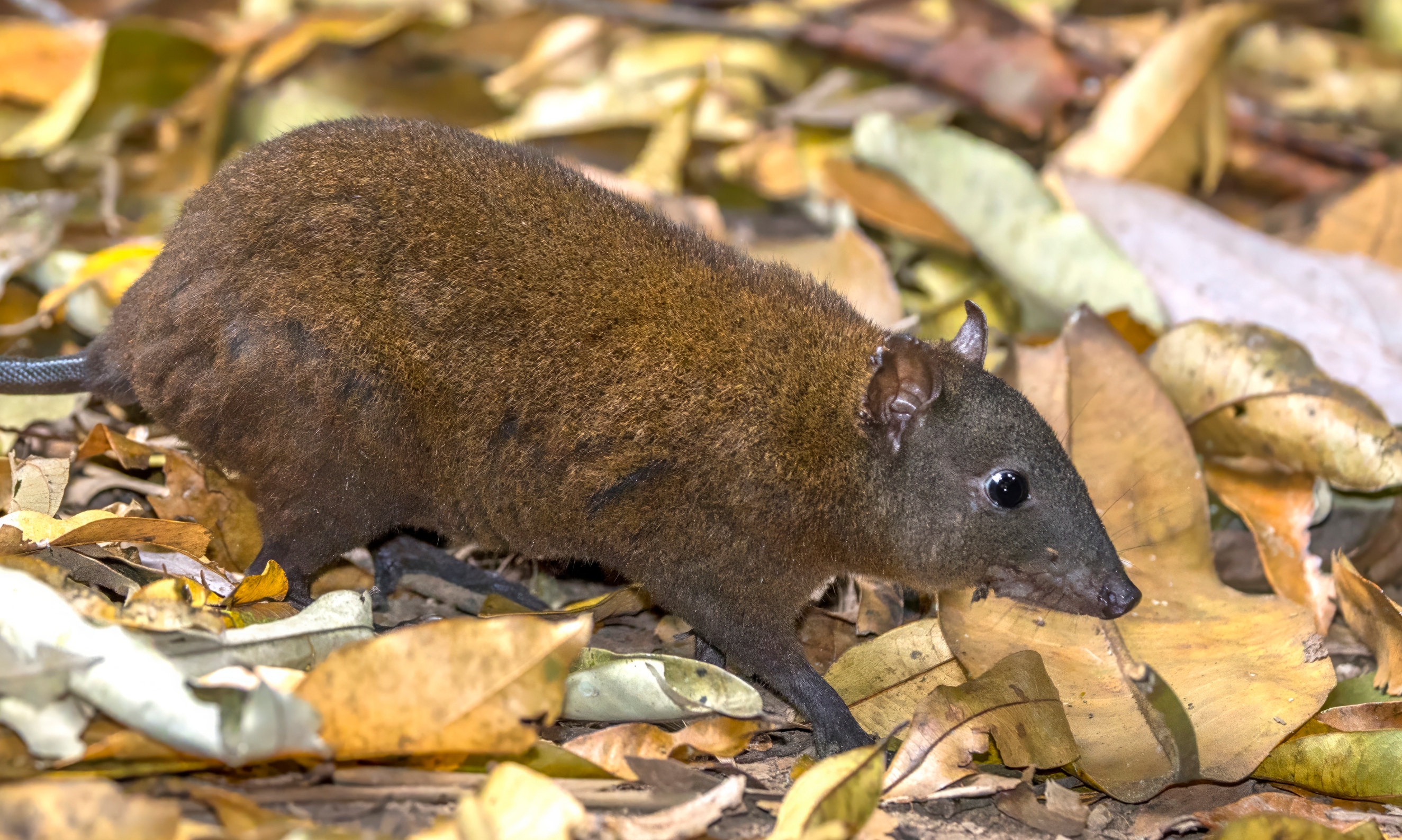
Image: QBiotics' scientists isolated tiglanol tiglate after observations that the musky rat-kangaroo (pictured) found the seeds of the blushwood tree unpalatable. Credit Charles J Sharp, sharpphotography.co.uk, CC BY-SA 4.0
Scientists at The Institute of Cancer Research, London, are collaborating with life sciences company QBiotics to unravel the molecular and cellular mechanisms of a potential new cancer drug.
The collaborative team will study the effects of tigilanol tiglate – a naturally occurring small molecule derived from the seeds of the blushwood tree, Fontainea picrosperma, which grows in the rainforests of northeastern Australia.
They are investigating its effects in samples from patients with head and neck cancer taking part in a clinical trial.
Injected directly into tumours, this potential new drug is currently under development as a treatment for a range of solid tumours, including head and neck cancer and soft tissue sarcoma.
The blushwood tree has long been of interest to QBiotics’ scientists after they observed that animals that feed on its fruit, such as the musky rat-kangaroo – the world’s smallest kangaroo – find the seeds highly unpalatable.
The tree likely evolved this trait to protect the seeds during dispersal across the jungle floor.
QBiotics’ chemists subsequently isolated a compound with anti-cancer properties from the seed – tiglanol tiglate – which may also be responsible for its unpalatability and developed a method for semi-synthesising it in the laboratory. Tigilanol tiglate is already registered in the UK, Europe, the USA and Australia for use as a cancer treatment for dogs and is under development as a cancer treatment for humans.
Studies by QBiotics show that tigilanol tiglate has a multifactorial mode of action, directly destroying treated tumour cells, disrupting the tumour blood supply, triggering a localised immune response and potentially leading to a systemic immune response in some patients. However, the drugs precise mechanism of action remains unclear.
Translational research
The Institute of Cancer Research (ICR) team involved in the study is based in the Centre for Immunotherapy of Cancer, a joint initiative between the ICR and our hospital partner The Royal Marsden NHS Foundation Trust.
The Centre aims to increase communication between clinicians and scientists with an interest in translational immunotherapy and is seeking further collaborations with industry in innovative research.
A phase II clinical trial, led by QBiotics, is currently underway to assess the effectiveness of tigilanol tiglate for the treatment of patients with advanced head and neck cancer.
In this study, the ICR and Royal Marsden researchers will analyse blood and tumour samples collected from the participants before and after treatment with tigilanol tiglate. The results will provide valuable insights into the drug’s mechanism of action, particularly its effects on the body’s immune response.
In addition to its potential as a monotherapy, preclinical studies suggest that tigilanol tiglate could enhance the effectiveness of other cancer treatments, including immunotherapy, chemotherapy and radiotherapy.
Gaining a better understanding of the drug’s mechanism of action could lead to the development of combination strategies that are even more powerful at destroying solid tumours.
Dr Antonio Rullan, honorary postdoctoral research fellow at the ICR and Clinical Research Fellow at University College London, said:
“We’re very pleased to be working with QBiotics to uncover new insights into how tigilanol tiglate exerts its effects on tumours and the immune system in people. Interestingly, this is a natural compound initially derived from the North Australian blushwood tree. Ultimately, we hope these findings accelerate the development of a much-needed new treatment option for patients with head and neck cancer worldwide.”
Dr Steven Ogbourne, Chief Translational Research Officer at QBiotics, said:
“This collaboration represents an important aspect of exploring tigilanol tiglate’s potential as a cancer treatment. By leveraging the ICR’s cutting-edge technology and world-class expertise in translational research, we hope to deepen our understanding of the precise mechanism of action of this promising drug candidate.
“Ultimately, the findings could help us navigate towards the most effective way of using tigilanol tiglate to deliver significant benefits for patients with a range of solid tumours.”
Jennifer Hodgson, Business Development Manager at the ICR, said:
“We’re delighted to be working in collaboration with QBiotics on this fascinating investigation of tiglanol tiglate, which is using the expertise of scientists in our Centre for Immunotherapy of Cancer to help to elucidate its mechanism of action. It’s a great example of a team from academia and industry combining to answer questions that might not be possible to answer alone, and which could end up having a big impact on patients in the future.”
